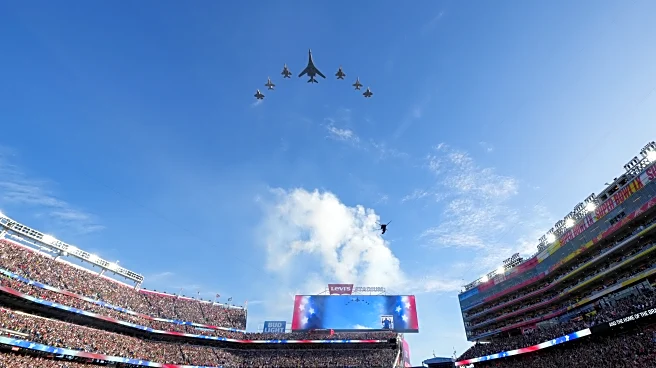What's Happening?
Saudi Arabia is making significant strides in the global sports arena by funding various professional sports leagues, including a new women's basketball league known as 'Project B.' Scheduled to debut in 2026, Project B will feature six teams with 11
players each, playing during the WNBA offseason across multiple continents, including North America. The league has already begun discussions with WNBA stars and signed active players for its inaugural season. Diana Taurasi, a retired WNBA legend, recently commented on the league, noting its unconventional yet intriguing nature. Her remarks highlight the potential impact of Project B on existing leagues like the WNBA and Unrivaled.
Why It's Important?
The emergence of Project B represents a significant development in women's basketball, potentially altering the landscape of the sport. By attracting top talent, the league could challenge the dominance of established leagues like the WNBA. This expansion reflects Saudi Arabia's broader strategy to become a global sports hub, which could lead to increased investment and opportunities in women's sports. However, it also raises questions about the influence of wealth and politics in sports, as well as the ethical considerations of participating in leagues backed by countries with controversial human rights records.
What's Next?
As Project B prepares for its launch, stakeholders in women's basketball will closely monitor its progress and impact. The league's ability to attract star players will be crucial in determining its competitiveness with existing leagues. Additionally, the involvement of high-profile figures like Diana Taurasi could influence other players' decisions to join. The WNBA and Unrivaled may need to strategize to retain talent and maintain their positions in the market. The broader sports community will likely engage in discussions about the implications of Saudi Arabia's growing influence in sports.
Beyond the Headlines
The development of Project B highlights the intersection of sports, politics, and global economics. It raises ethical questions about the role of countries with contentious human rights records in international sports. The league's success could prompt other nations to invest in sports as a means of soft power, potentially leading to shifts in how sports are governed and perceived globally. This situation underscores the need for ongoing dialogue about the values and priorities that should guide the expansion of sports leagues worldwide.


















